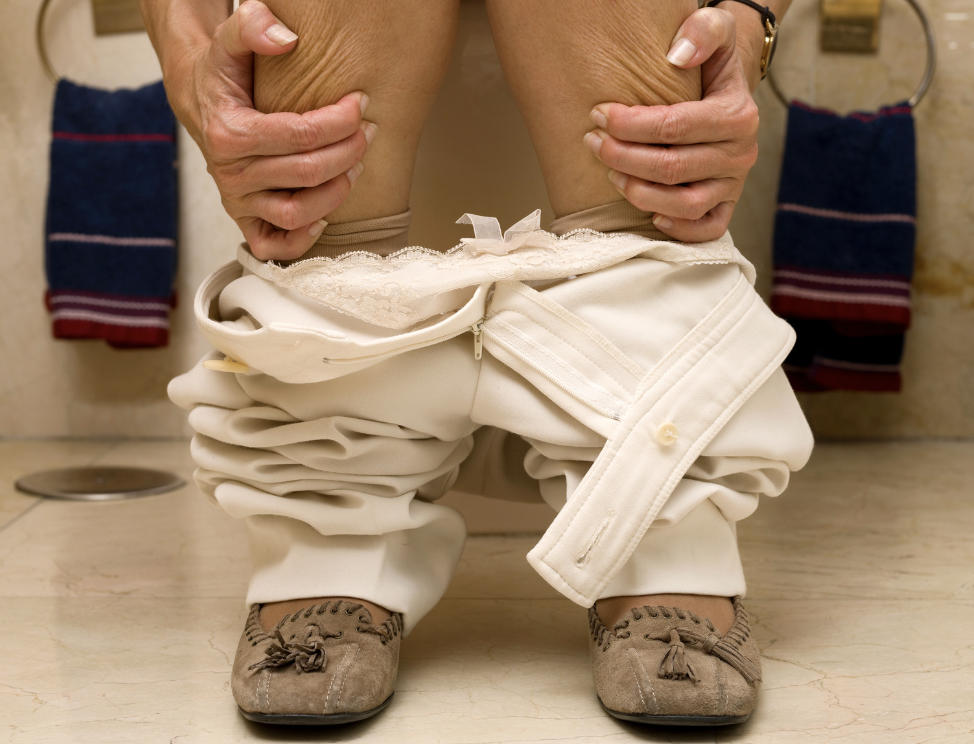Constipation is a prevalent condition in older adults, and its incidence increases with age. About 16% of men and 26% of women aged 65 or more have been struggling with constipation.
This article will discuss the signs of chronic constipation, its causes, and remedies.
Clinical presentation
Constipation can present with the following signs and symptoms,
- Passing fewer than 3 stools per week.
- Hard, dry, and lump-like stools.
- Passing stools smaller than usual.
- Straining to pass stools.
- Feeling that stool evacuation is incomplete.
When is constipation termed chronic?
Constipation can be considered chronic if two or more symptoms occur for the last three months.
Causes of chronic constipation
Chronic constipation is classified into the following two types on the basis of causes,
- Idiopathic or primary constipation occurs without any apparent cause. It is also known as functional constipation.
- Secondary constipation can result from other diseases such as hypothyroidism, dementia, geriatric depression, diabetes mellitus, irritable bowel syndrome (IBS), spinal cord or nerve injury, and vitamin deficiencies. Sometimes, colon cancer can also present with constipation.
Certain medications, such as opioids, sedatives, antidepressants, and anti-hypertensive drugs, can also cause chronic constipation.
Risk factors for chronic constipation
Apart from old age, some other risk factors make us prone to chronic constipation in old age. These factors may include a low-fiber diet, a sedentary lifestyle, and dehydration.
Home remedies for constipation in old age
The following measures can help manage and prevent chronic constipation.
- Maintain a healthy and balanced diet with high-fiber foods. High-fiber foods include vegetables, fruits, cereals, whole grains, and beans. The recommended daily fiber intake is about 20-35g per day.
- Drink plenty of fluids to soften the stools and keep ourselves well-hydrated.
- Regular physical activity and exercise.
- Use a stool diary to note the frequency of bowel movements and stools.
- Scheduled toileting after meals can also help improve the symptoms of chronic constipation. In scheduled toileting, we can schedule our toilet visits an hour or more after meals or at specific daily intervals.
If the problem persists, we can consider pharmacological methods after consulting with a physician.
Pharmacological Management
Different laxatives are now approved for short-term use in treating chronic constipation. These medications include,
- Bulking agents such as Psyllium powder.
- Osmotic laxatives like Magnesium hydroxide suspension and lactulose solution.
- Stool softeners (Docusate sodium capsules)
- Stimulant laxatives such as Senna or Bisacodyl tablets. These tablets are over-the-counter laxatives; thus, they don’t require a physician’s prescription.
Take Home Constipation is a common condition of the elderly, predominantly occurring in older women. Usually, it presents with hard stools, straining to pass stools and fewer stools than 3 per week. It may occur without any known cause or secondary to other diseases such as hypothyroidism, nerve injuries, depression, diabetes, etc. Home remedies like a high-fiber diet, plenty of fluids, and regular exercise can improve this condition. Sometimes, we may need laxatives to relieve constipation in old age.

